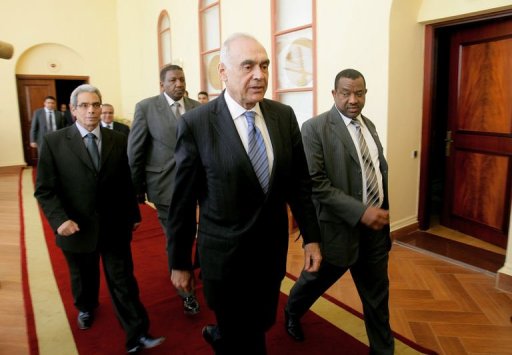CAIRO: Egypt’s market regulator aims to expand a limited assurance market by allowing more banks to sell life insurance products, a move that should encourage more Egyptians to get insured and get a bank account at the same time.
The regulator is also seeking to increase the reach of real estate investment funds by simplifying rules governing the registration of their assets, offering investors greater access to the booming construction and real estate sectors.
Both plans should be implemented within three months, Ziad Bahaa El-Din, the chairman of the Egyptian Financial Supervisory Authority (EFSA), told Reuters on Tuesday.
The latest initiatives are part of broader plans by the EFSA, which oversees the non-banking financial sector, to tighten equity market oversight, expand trading tools and boost microfinance, pensions and health insurance.
"We are discussing with the Central Bank of Egypt the rules for bank assurance," he said. "In the medium term it could grow it (the insurance market) significantly, but in the short term it needs to be very tightly regulated."
It is still rare for insurance firms to sell life cover through a bank’s branches in Egypt, where bankers estimate only 10 percent or so of the 78 million population has a bank account and less than 2 percent are estimated to have life insurance.
Asked if Egypt’s insurance market was underdeveloped, he said: "In size, yes. In practice and rules, I think we’re OK."
Private insurers in Egypt include Commercial International Life Insurance Company (CIL), Germany’s Allianz and Arab Misr Insurance Group, whose shareholders include Bahrain-based Arab Insurance Group and Kuwait’s Gulf Insurance Company.
Real estate funds, short selling
Bahaa El-Din said the EFSA was also simplifying the rule book for investment funds, including establishing specific rules for those investing in real estate assets and firms.
"Once it is issued it will be effective immediately because there are a number of funds in the pipeline that have found it difficult to get set up and work under the current rules."
The regulator is consulting a fund managers group and would post proposed changes on its website for public consultation in one month, aiming to issue them in two to three months, he said.
The EFSA has faced calls to approve other long-awaited initiatives, such as allowing short selling and derivatives trading. Bahaa El-Din said the issues were under consideration and short selling would be considered in the second half of 2010.
"It’s a matter of priorities … We feel it needs some significant and careful review in light of world developments … It’s more an issue of scheduling, rather than some big decision to postpone it."
Naked short-selling, where the seller has not borrowed the securities at the time of sale, has been blamed by some countries for exacerbating sovereign debt woes in the euro zone.
Egypt’s Misr for Central Clearing, Depository and Registry has said it has systems ready to start short selling, once the EFSA agrees, but said the system was based on borrowing shares from a central pool managed by the clearing house.
